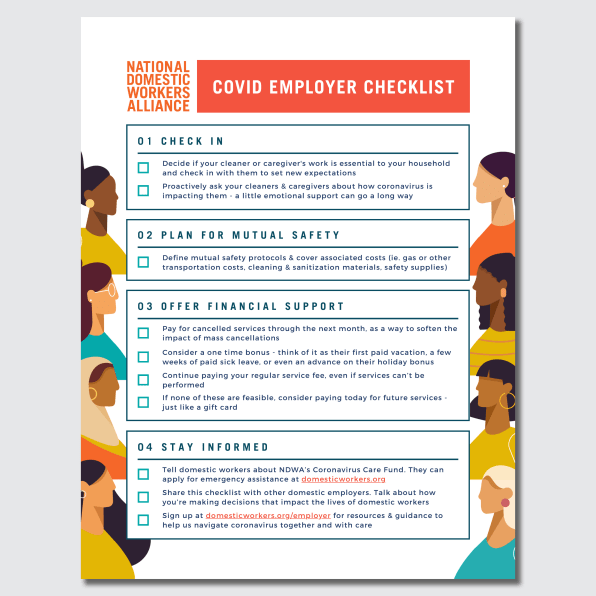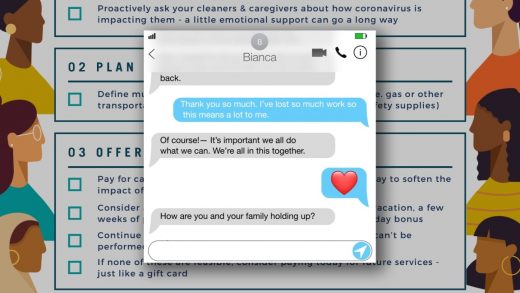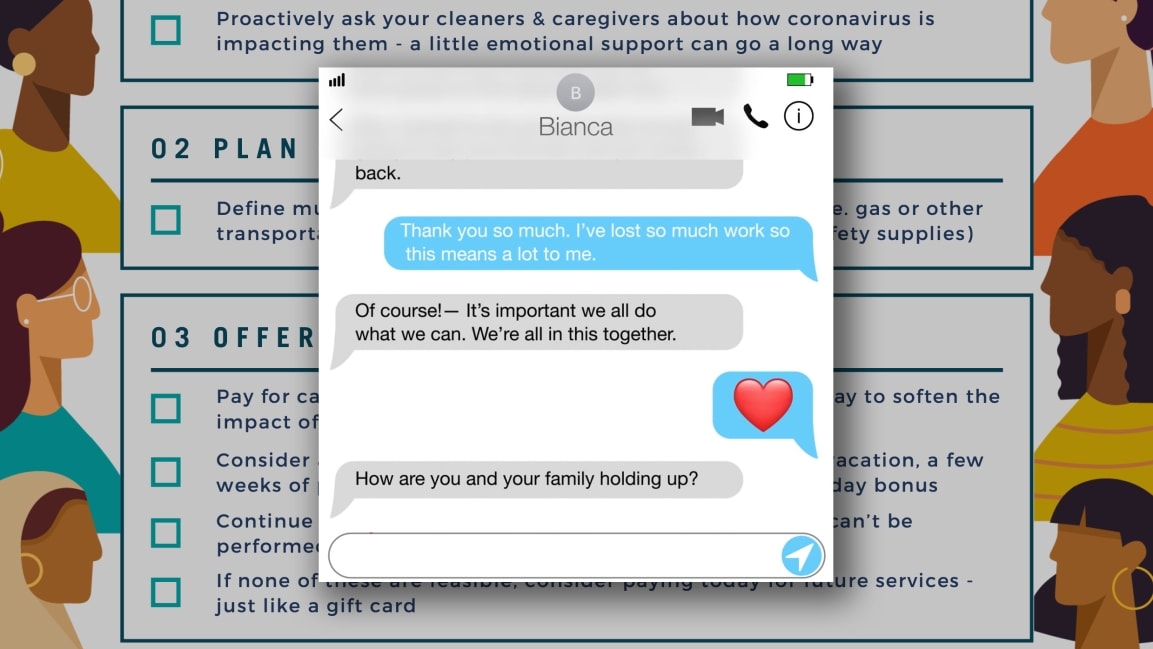Here’s how you can still pay your domestic workers during the coronavirus crisis
With millions of Americans working from home and sheltering in place, the need for domestic workers—who clean homes, look after children, and care for aging family members—has plummeted. Seven out of 10 domestic workers in the U.S. have lost 100% of their income because of the coronavirus crisis, according to the National Domestic Workers Alliance. A new campaign points employers toward ways they can support those workers, even if they’re no longer visiting our homes.
“By definition, domestic workers can’t work from home. By definition, the work is done in someone else’s home,” says Palak Shah, NDWA’s social innovations director. “The situation with domestic workers is that they often, for the most part, do not have any access to take time off or the formal safety nets [of labor protections]. … They’re really living on the edges of the economy.”
The Issue Domestic Workers Face During COVID-19
Care for those who care for you. ????
Posted by SoulPancake on Wednesday, April 15, 2020
Partnering with Participant, NDWA launched a campaign called “Care for the People Who Care for You.” At the center of the initiative is a video that shows the impact of the coronavirus crisis on domestic workers, as employer after employer cancels a worker’s jobs over text. One employer who pauses the worker’s cleaning services because “we all need to stay home, and we want you to be safe, too” adds that they will pay the worker’s full rate until she can come back.
The video then directs those who employ domestic workers to NDWA’s Employer Resource Hub, which lists steps to provide emotional and financial support to these workers. Other viewers who want to help can donate to the nonprofit’s Coronavirus Care Fund, which will offer emergency assistance for domestic workers facing hardships because of the COVID-19 pandemic. This effort is a continuation of NDWA and Participant’s Roma Social Impact Campaign, which leveraged the popularity of the Academy Award-winning film to bolster economic support for domestic workers.

“What we’re asking for employers to do is if you employ a domestic worker, especially if nothing in your financial situation has changed, please continue to pay them,” Shah says. Even if some domestic workers can continue with certain jobs, she adds, that means they’re risking their health. For those without sick leave, paid time off, or other benefits, that risk isn’t really much of a choice. The Employer Resource Hub from NDWA also includes advice to define mutual safety protocols for those workers still coming in, and urges employers to pay for things such as cleaning and sanitizing materials and other safety supplies.
Proceeds from the Coronavirus Care Fund, which has already nearly hit the nonprofit’s $4 million goal, will be administered to workers through Alia, NDWA’s online benefits platform that allows employers to directly fund benefits such as sick leave for their domestic workers. Employers can financially support their workers directly through that platform as well. “All of us can have a really important role to play in helping each other survive this moment,” Shah says. “And by ‘survive,’ I think it is that dire for domestic workers, both from a health perspective as well as from an economic perspective.”
(13)



